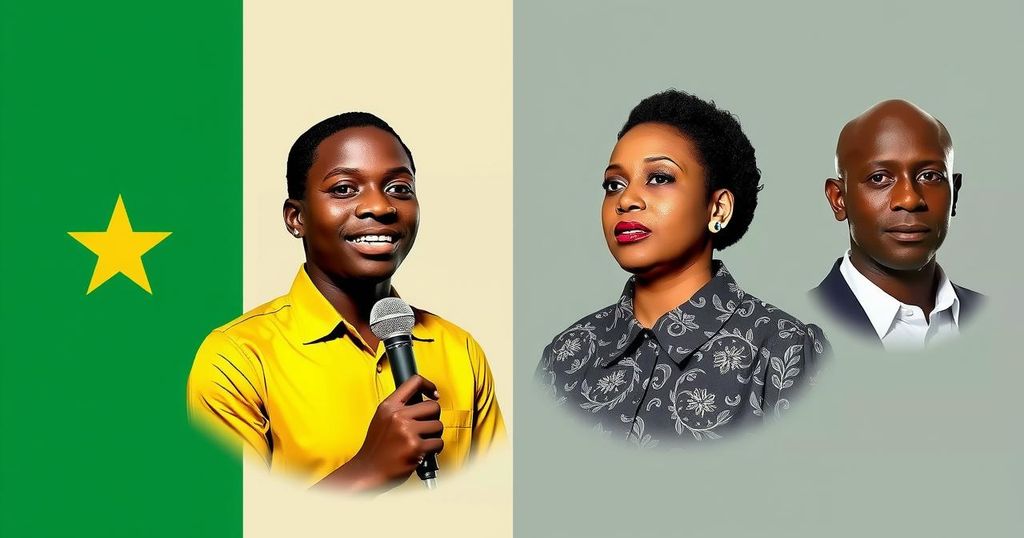Ghana is holding a crucial presidential election on December 7, featuring Mahamudu Bawumia of the NPP and former president John Mahama of the NDC. With economic challenges and social issues at the forefront, voters will elect both a president and parliament members. The election process has a history of close contests and peaceful transitions and will determine Ghana’s leadership for the next four years.
Ghana is set to elect a new president on December 7, marking a significant moment in the nation’s democratic journey. This election will feature Mahamudu Bawumia, the current vice-president, and John Mahama, a former president, as the two primary candidates. Bawumia represents the ruling New Patriotic Party (NPP), where he has served for eight years, while Mahama, from the National Democratic Congress (NDC), seeks to reclaim leadership after losing in 2016.
The electoral process encompasses both a presidential and a parliamentary election, with voters choosing from 12 presidential candidates and electing Members of Parliament across 275 constituencies. Economic challenges dominate voter concerns, with rising living costs and a strained budget compelling the government to secure assistance from the International Monetary Fund (IMF). Additionally, the issue of illegal gold mining, or “galamsey,” has sparked public protests and is expected to influence election discussions significantly.
Historically, Ghana’s elections have been notable for their peacefulness and close outcomes. Observers anticipate that the electoral commission will announce results by December 10, as voters prepare to engage in a crucial democratic exercise, potentially reconfiguring the country’s leadership and addressing pressing national issues.
As Ghana approaches its upcoming elections, the political landscape is shaped by a history of close and competitive contests since the reinstitution of multiparty politics in the early 1990s. President Nana Akufo-Addo’s departure after two terms opens the door for new leaders. Voter concerns largely center around the economy, social stability, and governance, reflecting broader regional and global economic trends affecting many citizens. The potential for a peaceful transfer of power continues to be one of Ghana’s defining characteristics, and the government’s handling of contemporary issues plays a pivotal role in shaping voter sentiment.
In conclusion, Ghana’s forthcoming elections represent a decisive moment for the nation’s future. With key issues centering on economic stability and environmental concerns, Ghanaians will face significant choices between two prominent candidates, each promising different pathways to recovery and growth. The election will test Ghana’s democratic resilience as it navigates economic crises and social challenges, and observers will closely monitor the integrity of the process and efficacy of voter engagement.
Original Source: www.bbc.co.uk







